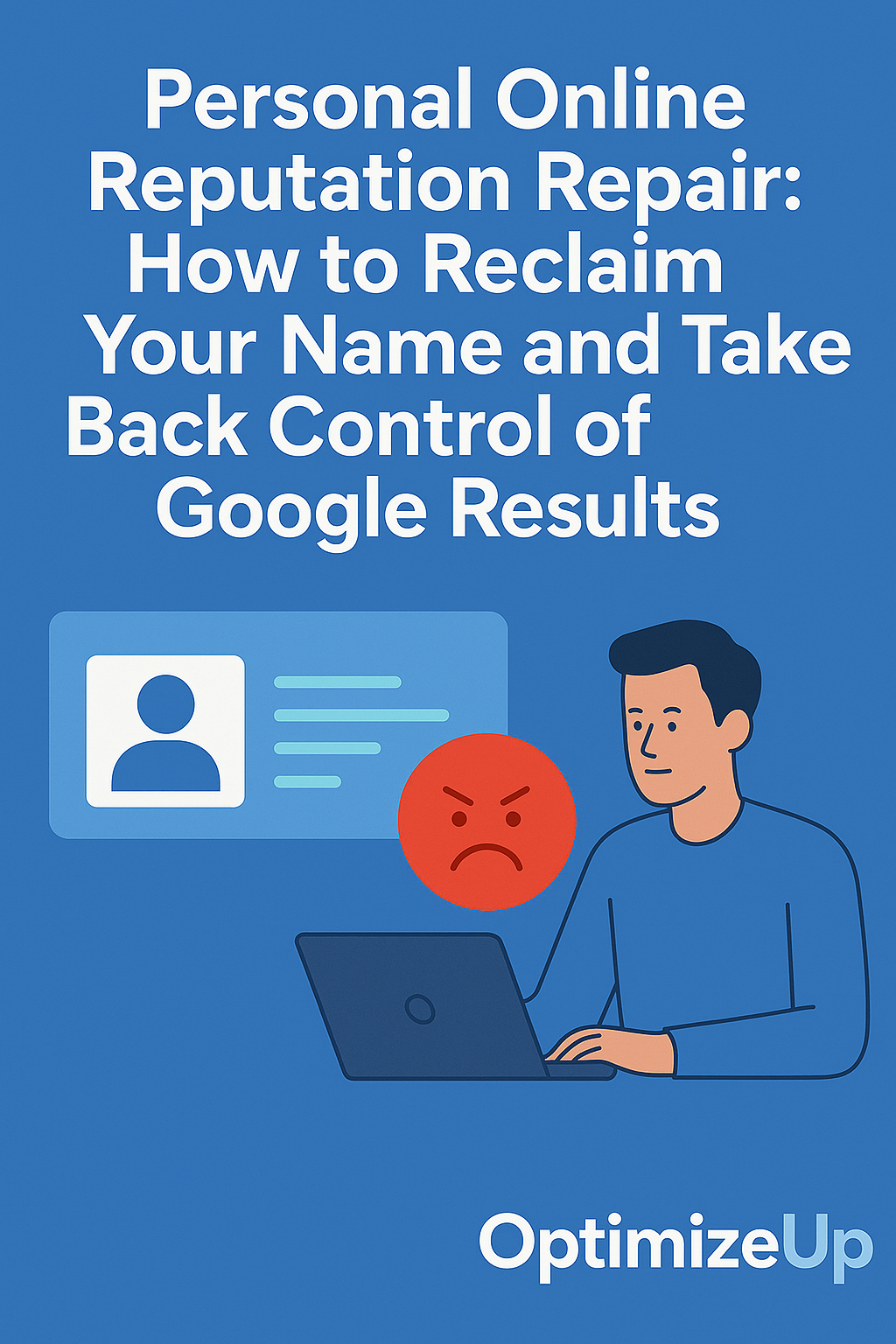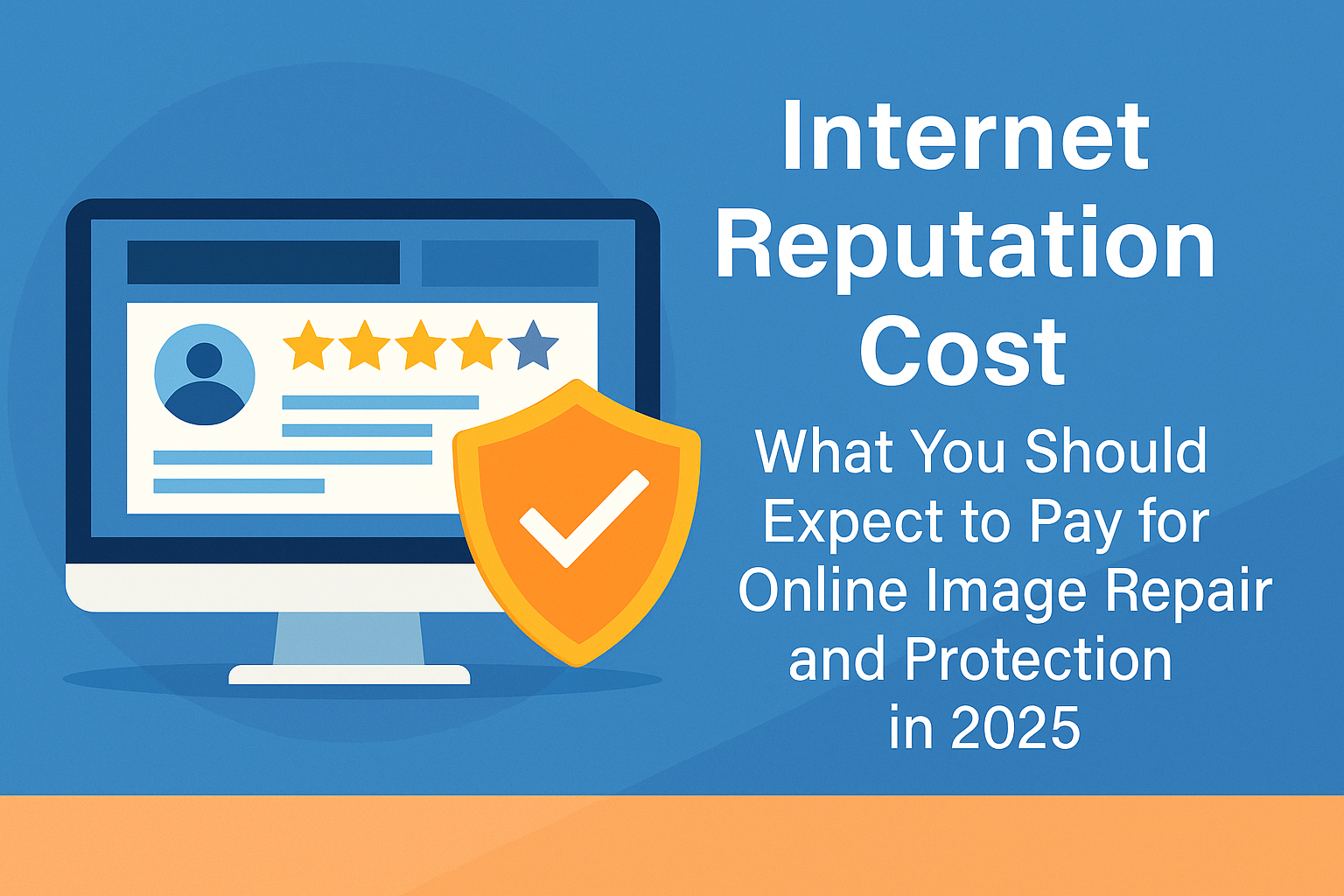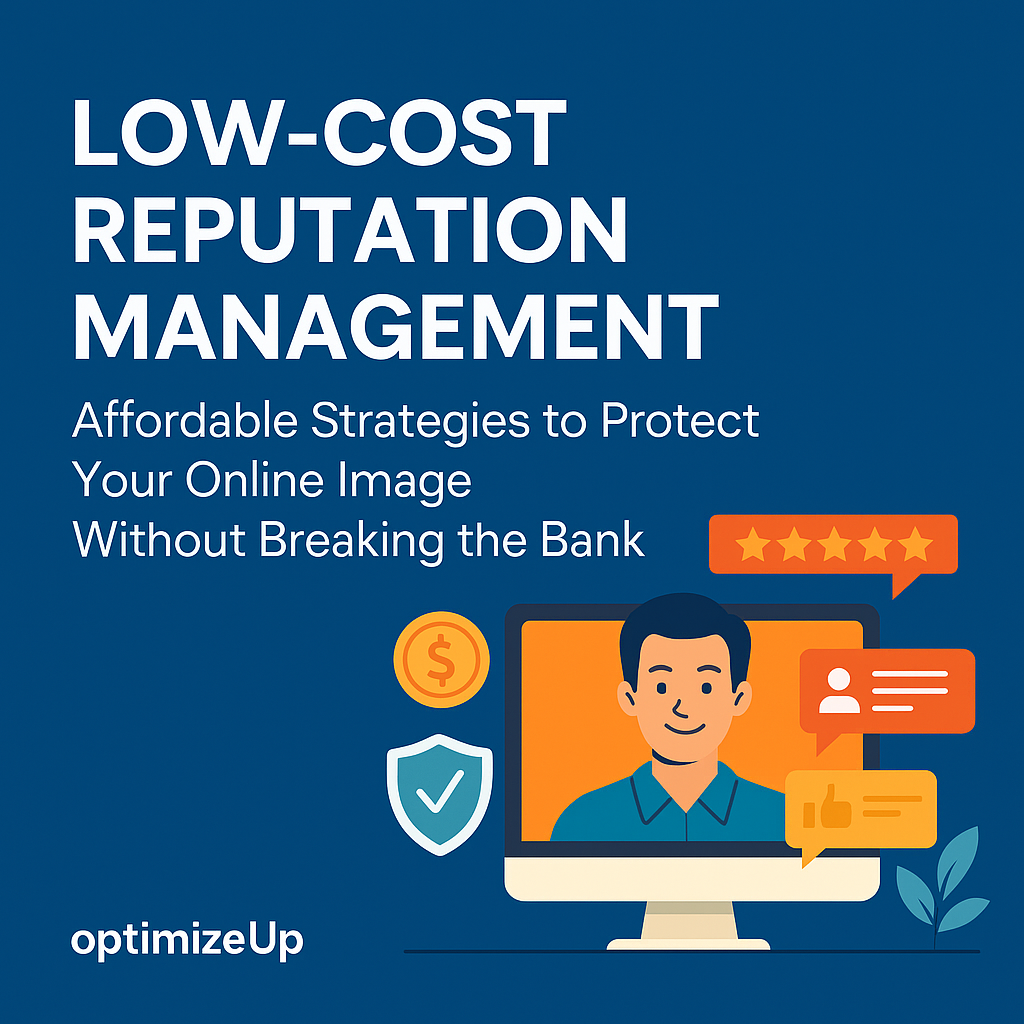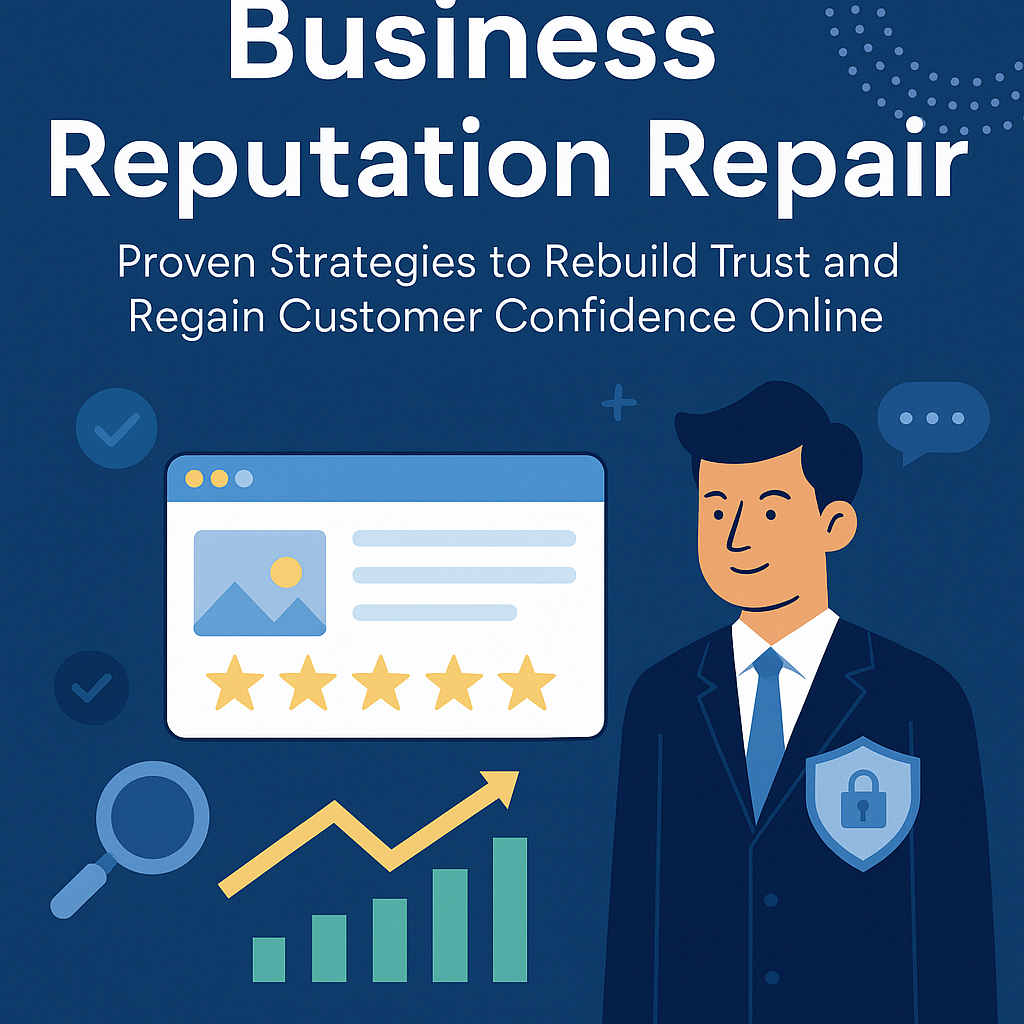Why Personal Online Reputation Repair Matters More Than Ever
Google your name. What do you see? If the results aren’t flattering—or worse, defamatory—you’re not alone. In 2025, search results serve as the world’s first impression of you. Whether you’re applying for a job, pitching investors, or dating online, your online footprint can either be a passport or a prison.
Your personal online reputation isn’t just about vanity—it’s about credibility, safety, and opportunity. That’s why proactive online reputation repair is crucial.
Real-World Impacts
- Employment screening: 85% of employers review Google results before interviews.
- Social bias: Poor online presence can influence how people treat you in social or professional settings.
- Business relationships: Clients and vendors often vet individuals before agreeing to deals.
Core Principles of Personal Reputation Recovery
1. Audit Your Online Presence
Start by searching your name on Google, Bing, and Yahoo. Check image, video, and news tabs too. What platforms appear most frequently? Is the information accurate?
Tools to audit your reputation:
2. Prioritize What to Address
Not all negative content is created equal. Prioritize based on visibility, legality, and emotional impact:
- High-priority: Defamatory articles, false news, arrest records
- Medium-priority: Critical blog posts, negative reviews
- Low-priority: Outdated profiles, minor social commentary
The Three Pillars of Reputation Repair
Suppress the Negative
Negative content is hard to delete—but it can be buried. To do this:
- Create and publish high-ranking content (blogs, interviews, videos)
- Optimize positive URLs with keywords
- Build backlinks to positive assets
Remove What You Can
Removal is possible in certain cases:
- DMCA takedowns for copyright infringement
- GDPR/CCPA requests for privacy violations
- Outdated content removal via Google’s tool
Build a Strong Positive Identity
Ongoing positive presence will make new negatives less visible:
- Launch a personal website with SEO-optimized content
- Claim and optimize social profiles (LinkedIn, Twitter, YouTube)
- Publish thought leadership on Medium, LinkedIn, or Substack
Content Strategy for Online Reputation Repair
Blog Topics That Work:
- “Lessons I’ve Learned About [Your Industry]”
- “The Truth About My Experience With [Company/Event]”
- “Why I Believe in Second Chances”
Long-Form and Multimedia:
- Video testimonials
- Podcast interviews
- Slide decks or webinars
Use schema markup for rich results and track performance with Google Search Console.
SEO Content Calendar Example:
| Week | Topic | Platform |
|---|---|---|
| 1 | Professional bio | Website blog |
| 2 | Thought leadership post | |
| 3 | Q&A on Quora | Quora.com |
| 4 | Educational video | YouTube |
Social Media Control Tactics
Lock Down Privacy
Review privacy settings on Facebook, Instagram, and TikTok. Limit who can tag you or post on your timeline.
Dominate Search with Public Profiles
Your profiles can rank high:
- Twitter (X)
- YouTube
- About.me
Create Branded Content
Use consistent usernames and bios. Link back to your personal site. Use branded hashtags to group content.
Legal Tools for Reputation Defense
U.S. Legal Avenues
- Defamation lawsuit: File if false statements have damaged your reputation.
- Cease and desist letter: First step before legal action.
- DMCA takedown notice: For unauthorized use of copyrighted material.
EU & Global Tools
- GDPR Article 17: Right to be forgotten in the EU.
- National privacy laws: Many countries allow formal takedown requests for personal data.
Advanced Tactics: Wikipedia, Reddit, and Beyond
Wikipedia Presence
If you’re notable enough (author, speaker, entrepreneur), consider applying for a Wikipedia page through neutral editors. While difficult to gain approval, a valid article can dominate search results.
Reddit Engagement
Reddit threads often rank in Google. Use subreddits like r/AskReddit or r/IAmA to showcase your expertise. Provide authentic value and mention your background organically.
Google Knowledge Panel
If Google sees you as an entity, it may display a Knowledge Panel. To encourage this:
- Use Google’s Claim My Knowledge Panel
- Have consistent schema across platforms
- Increase your mentions on authority sites
Quora Domination
Answer relevant questions using your full name. Format answers well and include references to boost upvotes and credibility.
Optimize Up: Helping You Win Back Your Name
At Optimize Up, we specialize in:
- Personal name suppression SEO
- Google search result repair
- Strategic content campaigns
- Crisis reputation interventions
- Long-term monitoring and defense
📩 Request Your Free Personal Reputation Assessment
Let us help you build a stronger online identity that tells the real story.
Additional Resources for Personal Online Reputation
- Google Me: One Man’s Attempt to Explain the Internet by Jim Killeen
- Online Reputation Crisis Guide via HuffPost
- Right to be Forgotten – EU Laws
- FTC Consumer Advice on Online Scams and Privacy
Frequently Asked Questions (FAQs)
It involves removing or suppressing unwanted online content and promoting positive, accurate content about you.
Timelines vary—typically 3 to 12 months—depending on the severity and visibility of the negative content.
Only under certain conditions: outdated content, legal violations, or via GDPR/DMCA processes. Most content must be suppressed.
Yes. SEO-driven suppression through content creation and promotion is ethical and legal.
Yes—especially when combining SEO, content marketing, and expert monitoring.
Yes, but it requires consistent effort in SEO, content creation, and social media management.
Document the link, determine if it violates any laws or policies, then begin a suppression or removal strategy.
Results can last for years if you maintain a strong online presence and monitor regularly.
Free if you DIY, but professional services range from $500 to $5,000+ per month depending on complexity.
Works Cited
GDPR Info. “Art. 17 GDPR – Right to erasure (‘right to be forgotten’)” https://gdpr-info.eu/art-17-gdpr/
Google. “Remove Outdated Content.” https://search.google.com/search-console/remove-outdated-content
Forbes. “Why Online Presence Can Make or Break You.” https://www.forbes.com/sites/forbeshumanresourcescouncil/
Search Engine Journal. “Online Reputation SEO Best Practices.” https://www.searchenginejournal.com
TechCrunch. “How AI Impacts Online Search.” https://techcrunch.com
Moz. “What Is Online Reputation Management?” https://moz.com/learn/seo/what-is-online-reputation-management
HuffPost. “Online Reputation Crisis Guide.” https://www.huffpost.com/entry/online-reputation-crisis_b_11687960





